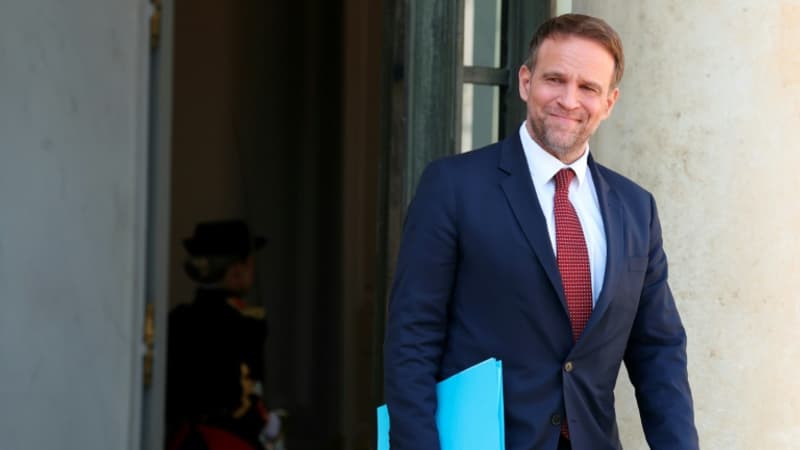“We have to change your method (…) to enter a stronger and more credible negotiation position,” said the Minister of Industry and Energy on Tuesday, July 22, when the discussions continue between the European Commission and the United States on customs tasks.
“During the last three months, the negotiations have not led to the expected result, the American position has even hardened,” said the minister, while the French government pushes its European partners to tighten the tone against Donald Trump. “Positions in Europe tend to evolve,” said Marc Ferracci.
Donald Trump threatened the EU to impose 30% of customs taxes on European products. Brussels always hopes to reach an agreement, but Donald Trump demands these new concessions while The EU hoped to get out of it with a 10% rate In most products and exemptions in certain key sectors, such as aeronautics or automotive.
Answer
“The United States is looking for an asymmetric agreement,” said the minister, warning against the possible consequences for the French industry. “Some industrial sectors have talked about a mortal danger. 30% of customs tasks would have absolutely dramatic consequences in all value chains,” said Marc Ferracci.
A first time of countermeasures has already been approved. It provides customs barriers noted for 21 billion euros in American products, such as soybeans or poultry. Its entry into force was suspended until the end of the negotiation, provided for in this stage in early August.
Another plan has also been prepared, with additional 72 billion euros. It would significantly go to Boeing aircraft.
Among the twenty-seven years, France also suggests the use of “anti-coercion instrument”, created in 2023. Marc Ferracci indicated that this could trigger “export controls or online advertising restrictions for digital platforms.”
Meeting in Berlin
Emmanuel Macron has to go to Berlin this Wednesday to meet Friedrich Merz. From the beginning of the negotiations, the German Chancellor has insisted on concluding an agreement quickly, even if that means granting painful concessions to Donald Trump.
Unlike France, Germany has a significant commercial surplus over goods against the United States. Depending on industrial exports, the German economy fears an escalation of the commercial war.
“Without reprisals, the cost of American protectionism is for the United States, near zero. With European reprisals, this cost becomes significant for the United States, even if the damage remains double for the European Union,” said CEPII (Center for Prospective Studies and International Information) in a note published last May.
Source: BFM TV


